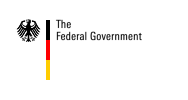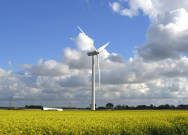Commission President José Manuel Barroso stressed the need for a new energy policy to address challenges being faced, from climate change to globalization. Energy Policy Commissioner Andris Piebalgs noted: "If we take the right decisions now, Europe can lead the world to a new industrial revolution: the development of a low-carbon economy. "
Improvement of internal energy market
Barroso reported that studies commissioned by the European Commission have shown that the internal market isn’t working the way it’s supposed to in the electricity and gas sectors. There’s a need, in his view, to separate energy production from the operation of power grids and gas pipelines.
The Commission feels a separation of this kind is necessary so that new competitors can enter the market. It would also create incentives for investments in cross-border energy networks.
Barroso indicated that the internal energy market could be monitored by a European regulatory agency. National regulators don’t have the requisite legal means at their disposal, given that they are limited to their national markets.
Barroso observed that a unified internal market policy has an international dimension in that internal agreement makes it easier to negotiate with third countries.
Accelerating the shift to low-carbon energy
The Commission indicated that it would like to see the use of renewable energies expanded more rapidly than in the past. Their production and consumption involves little or no carbon dioxide emissions.
Brussels proposed as a binding target that 20% of the EU’s overall energy mix be sourced from renewables by 2020. A commitment of this scale has never been made before.
Achieving this target would require massive growth in all three renewable energy sectors: electricity, biofuels, as well as heating/cooling. The effort would be assisted by setting a minimum target for biofuels of 10% of the total, exceeding all past targets for biofuels.
The Commission wants to promote research on new energy technologies and intends to propose a European Energy Technology Plan later this year. Annual spending on energy research is to be increased by at least 50 percent over the next seven years.
Energy efficiency
The Commission reiterated its objective of saving 20% of total primary energy consumption by 2020. This is to be done, among other things, by speeding up the introduction of fuel-efficient vehicles, imposing tougher standards and better labelling on electrical appliances, as well as improving the energy efficiency of buildings. A further objective is to improve the efficiency of heat and electricity generation, transmission, and distribution.
The Commission also proposed a new international agreement on energy efficiency.
International energy policy
The Commission called for increased efforts to reach an agreement on a post-Kyoto climate regime after 2012, saying the developed countries need to reduce their emissions by an average of 30 percent compared with 1990.
As Environment Commissioner Stavros Dimas recently put it, the more developed countries do in this regard, the more developing countries will follow their example.
The Commission proposed that the EU reduce its greenhouse gas emissions by at least 20 percent, independent of the success or failure of the climate talks.
The Commission’s strategic energy review will be on the agenda of the European Council meetings of environment and energy ministers in February. Energy and climate change will be the focal topics at the spring summit in March. The Commission is hoping to see its proposals approved at the summit. If they are, the Commission will propose corresponding amendments of the relevant EU directives and regulations for adoption at the summer summit.
The EU constitutional treaty would have placed the energy sector in the group of shared competences. Since the treaty failed to enter into force, the following applies: the European Union’s competence with regard to nuclear energy derives from the Treaty establishing the European Atomic Energy Community. Article 40 thereof authorizes the Commission to report on the current state of the nuclear sector. Otherwise energy policy is for the most part under the jurisdiction of the national governments. EU competences with regard to the internal market, competition, and the environment also make it possible to legislate on matters concerning the energy sector. One example is trans-European networks, seeing as they are also being realized in the energy sector.

